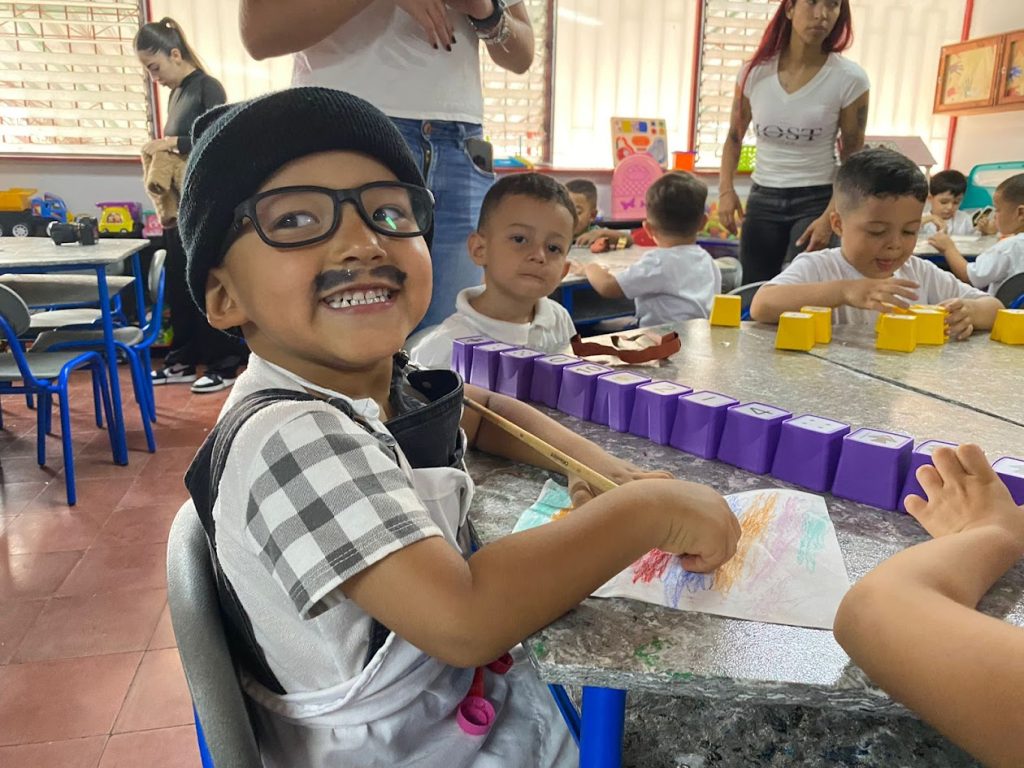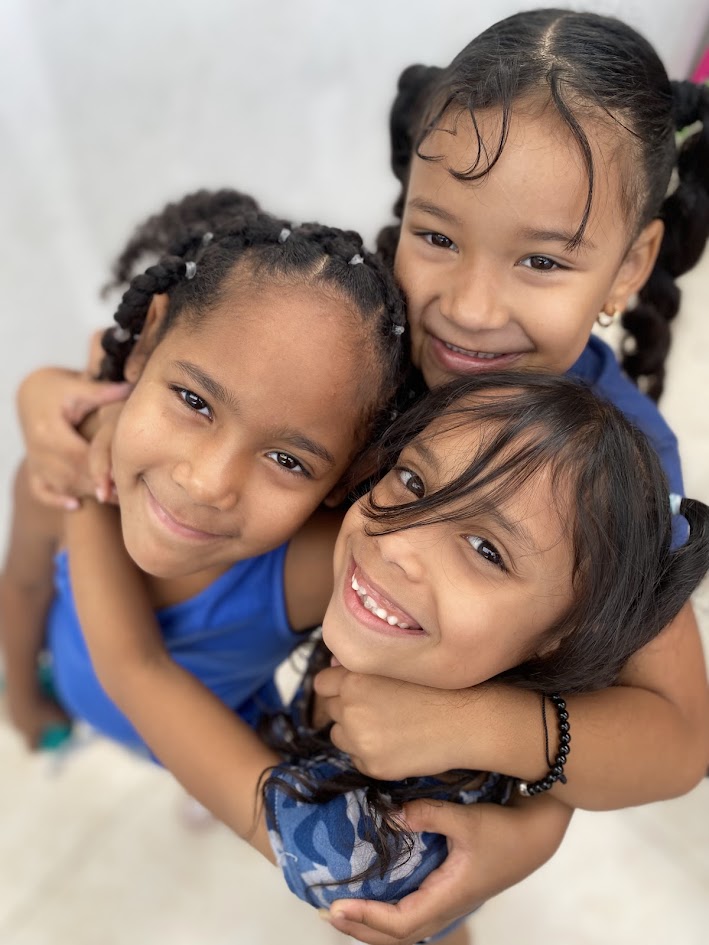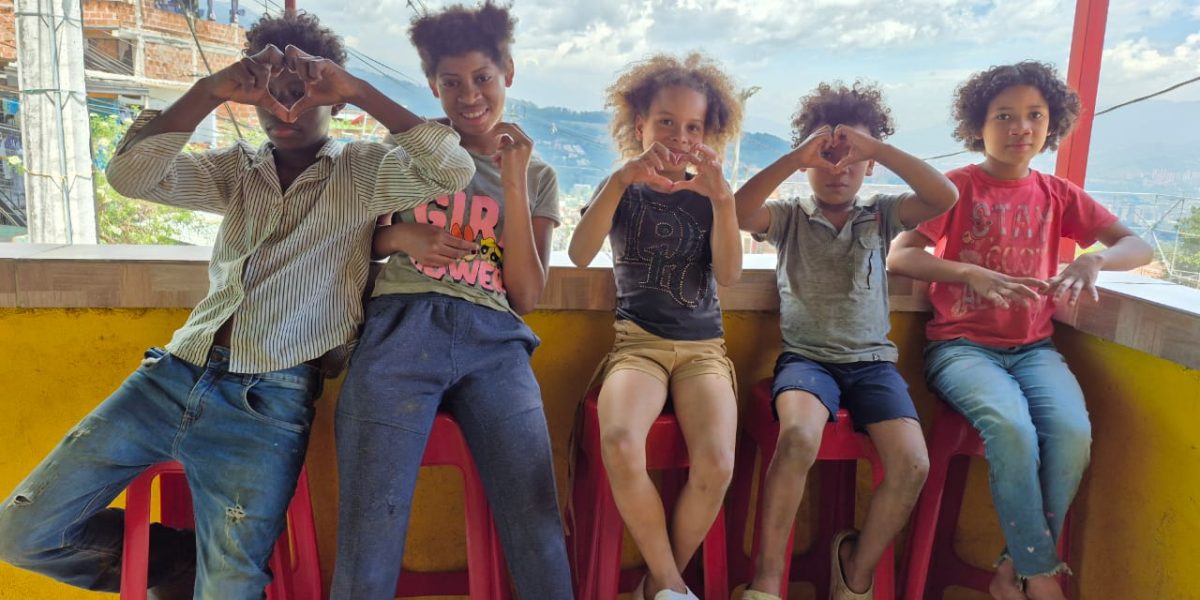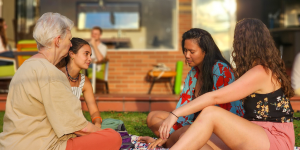Big Problems, Small Solutions: Why Local Organizations Matter in Colombia
Before we dive in, a quick disclaimer: I’m not here to depress you. Yes, this is a blog about inequality, systemic injustice, and structural poverty. But hang in there, because it’s also about opportunities, footballs, meals and hope. 🌟
Let’s start with a not-so-fun fact: Colombia is one of the most unequal countries in the world. According to a World Bank study in 2018, out of 75 countries, Colombia ranked last in intergenerational income mobility. Translation? If you’re born into poverty here, chances are, you’ll stay there. No matter how smart, creative, or hardworking you are.
And while that might sound like something that should be solved by governments, policy makers, and big companies, the reality is that most real change doesn’t start with big systems. It starts with a human.

The Little Guys
This is where small, local foundations step in. They aren’t always sexy. They don’t have billboards at the airport or flashy fundraising galas. But they do have presence. Consistency. Trust. And boots (or Crocs) on the ground.
They show up in neighbourhoods where public services don’t. They know the names of the kids. They know who missed breakfast. They don’t operate on KPIs and donor metrics alone, but on relationships and impact you can actually see.
To quote Dan Pallotta, who gave one of the best TED Talks ever, the way we think about charity is fundamentally flawed. We demand low overhead, unpaid volunteers, and martyrdom, while expecting NGO workers to solve the same problems billion-dollar systems can’t. He says, “We have a visceral reaction to the idea that anyone would make money helping other people.” And he’s right. We underfund the very people trying to fix the stuff we complain about.
And yet, despite all that, the small orgs keep going.

What Impact Really Looks Like
In 2023, Colombia’s poverty rate dropped from 36.6% to 33% — that’s 1.6 million people who moved above the poverty line (source: DANE via ColombiaOne). Was that all because of small NGOs? No. But they played a vital role in reaching communities where policy doesn’t reach.
From workshops to learn how to sow to grassroots education programs, their work doesn’t just hand out resources. It restores dignity. It builds skills. It gives kids that first football or school uniform, the little things that become big things.
And if you live in Medellín, chances are, you’re closer to this than you think.
So, What Can You Do? (Glad You Asked)
If you’re part of the MDE community — digital nomads, remote workers, creatives, coffee-snobs, voluntourists, or just someone who’s fallen in love with this city, there’s a way to plug in.
At DNfG (Digital Nomads for Good), we collaborate with these small, local foundations. We support them with time, skills, donations, and publishing their impact. We believe that being a guest in this city also means being a good one. And that good can start small.
More on that soon. For now, maybe ask yourself: what would it look like if your impact here lasted longer than your tourist visa?
So, what you can do: we have a weekly volunteer calendar on our Instagram, so you can jump into a local project whenever you’ve got time to spare. And if your time is short but your heart is big, you can donate in under two minutes, either to a specific foundation that speaks to you, or to all 18 of them at once with one simple click dnfg.org.uk .
Written by Sabine Bouwmeester, former director of a foundation, COO at DNfG, located in Medellín.
“I believe that generosity, critical thinking, and good coffee can change the world — in that order.”






